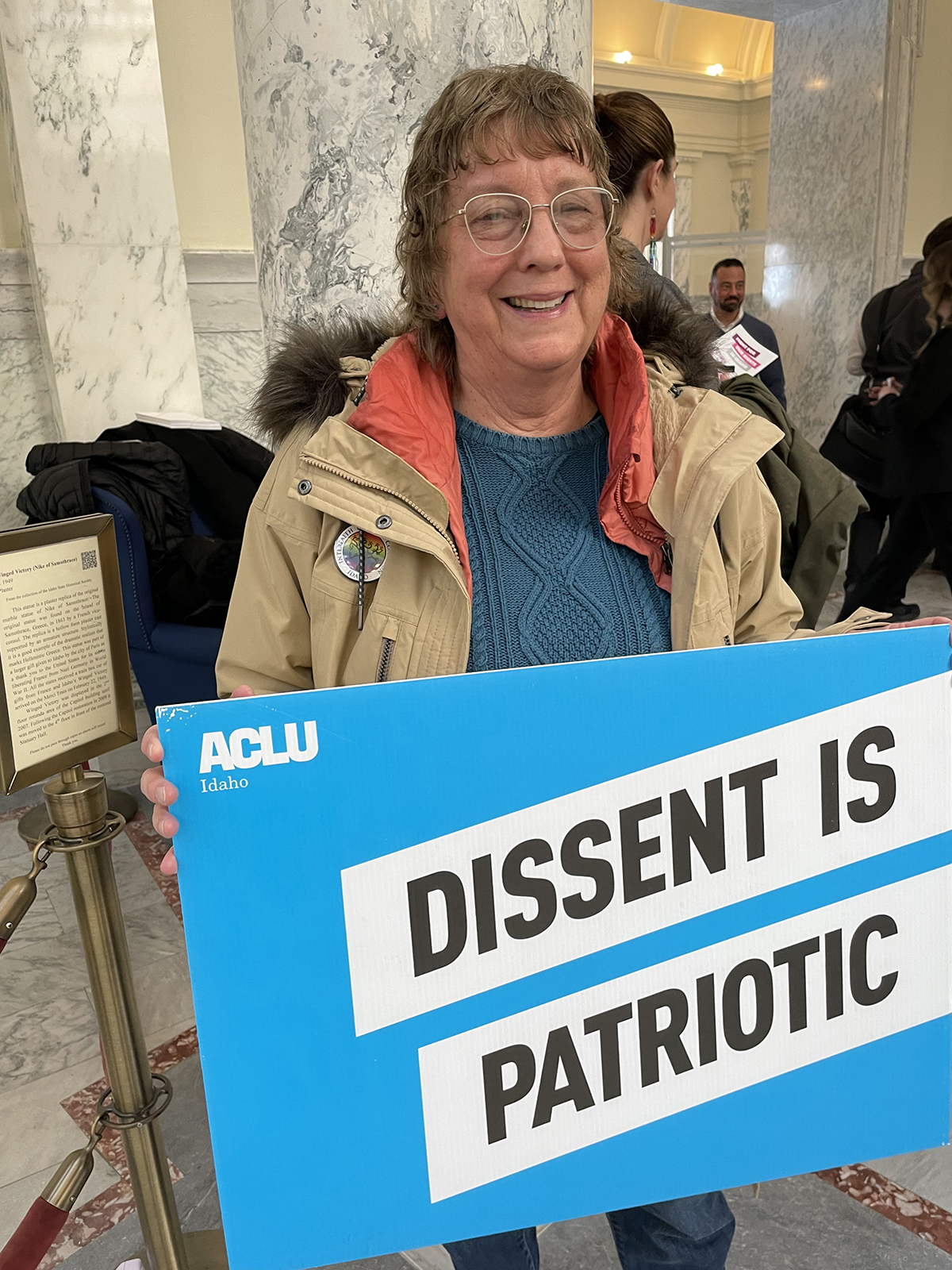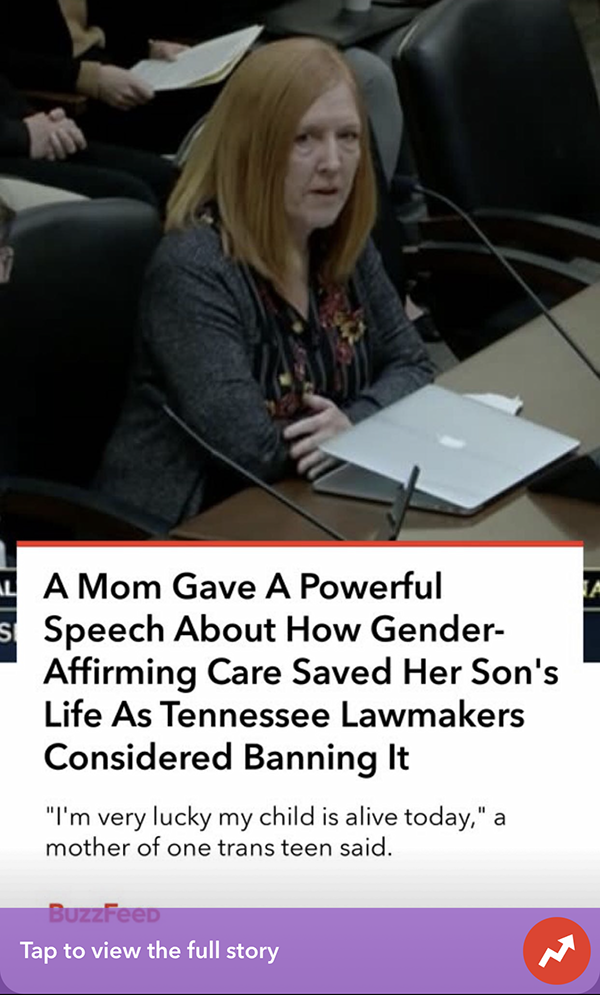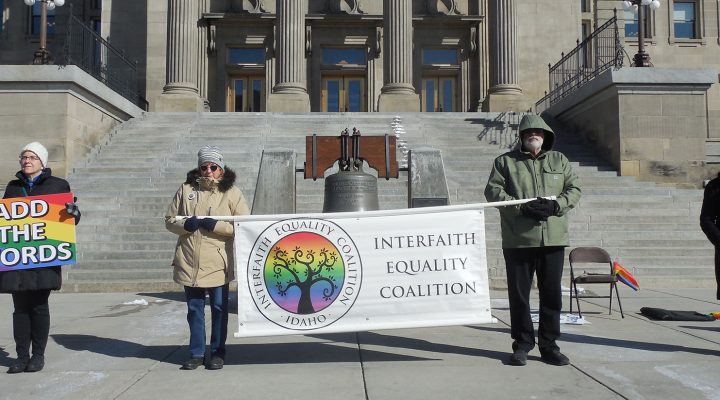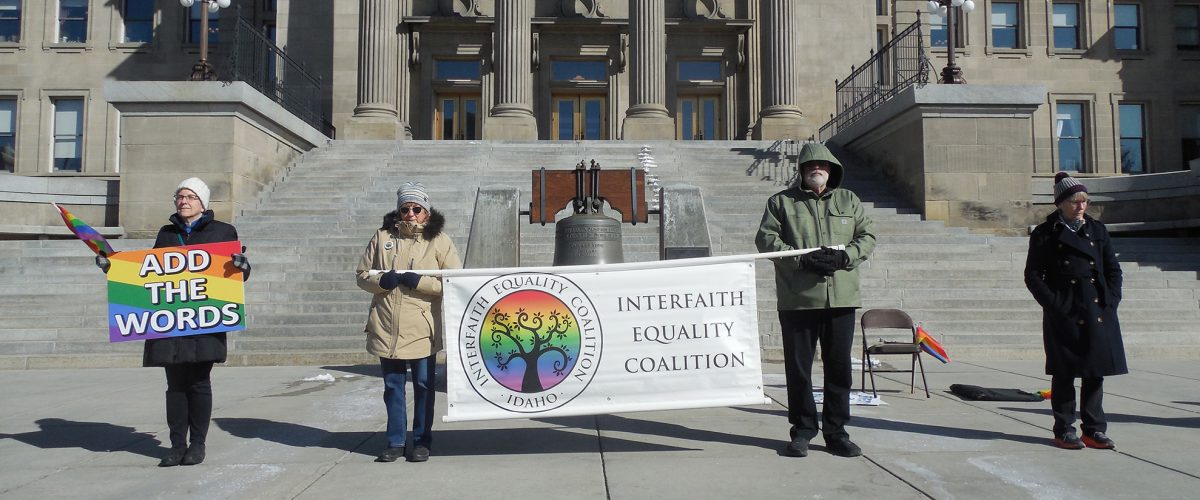Amid this spring’s wave of anti-transgender bills in state legislatures, United Methodists across the United States are actively advocating on behalf of transgender children and youth.
For some of them like Debbie Mallis of Boise, Idaho, and Heather Gee-Thomas of Nashville, Tenn., this year’s efforts are the latest in a decade of speaking out on behalf of the LGBTQ community.

Debbie Mallis
“I live in one of the reddest states in the U.S.,” Mallis said. “We have had anti-LGBTQ bills come through our legislature for a long time.
“In the last few years, we have seen a number of anti-trans bills introduced and passed,” added Mallis, a member of Hillview United Methodist Church in Boise. “The courts have thrown out some and some are still in litigation. This year our legislature is even more right-wing, so we are seeing more nasty bills.”
Those “nasty bills,” as Mallis terms them, have galvanized United Methodists in multiple states to travel to their legislatures to testify against them. Proposed legislation has ranged from outlawing drag queens reading to children in public libraries to criminalizing parents who seek gender-affirming care for their children and teenagers. According to Trans Legislation Tracker, there are currently 492 such bills proposed in 47 states, with 25 passed, 424 active and 43 failed.
There are currently 492 such bills proposed in 47 states, with 25 passed, 424 active and 43 failed.
In Texas, more than 550 United Methodist clergy published an open letter supporting International Transgender Day of Visibility March 31 as part of a campaign protesting efforts by Republican legislators to outlaw all gender-affirming care, especially for children. The letter notes discriminatory policies in the past have been used to “erase” groups of citizens.
The campaign’s lead organizer, Geoffrey Moore, and hundreds of people of faith traveled to the Texas Legislature in Austin March 27 to testify against HB-1686, which proposes to outlaw gender-affirming care including hormone treatment. More than 2,800 people registered against the bill, including 470 who registered to speak, according to Texas Impact. Among them was Jeff McDonald, senior pastor of St. Paul UMC in Houston, who was badgered by State Rep. Tony Tinderholt (R-Arlington) during his testimony.
Scott Atnip, public witness director for Texas Impact, a faith-based advocacy organization, said in a news release that many of those who registered to speak against HB-1686 were prevented from speaking by a time limit imposed by the chair of the Texas House Public Health Committee. In response, Texas Impact has invited United Methodists and other people of faith to record their opposition to HB-1686 and its companion SB-14 and post them on social media with the taglines #TexasFaithVotes and #PeoplesTestimony.

Heather Gee-Thomas
In Tennessee, Glendale United Methodist Church member Heather Gee-Thomas faced disappointment after testifying against a transgender bill. The mother of a 23-year-old transgender son and a 26-year-old daughter, Gee-Thomas said she testified before the Tennessee Legislature Health and Welfare Committee that also considered a bill banning gender-affirming care for children under age 18.
A technology entrepreneur, Gee-Thomas said she was motivated to testify because of her family’s experience with her son’s transition. She said she “went deep into research” when the anti-trans bill was proposed, even to meeting with a committee chair she knew as she prepared to testify before the Legislature.
“From age 2 we knew something was different about our child,” the mother said. “We thought because he was so masculine, he’d be lesbian, but being trans didn’t cross my mind.”
In middle school, her son began to be bullied because they didn’t fit in with girls or boys. The parents secured antidepressant therapy for their child after they showed suicidal tendencies multiple times.
“Across the country trans parents all have similar stories,” Gee-Thomas said. “(Being transgender) is nothing any parent would wish on their child or groom their child to become. My kid went through hell even though he’s now in a good place.
“Being transgender truly is a medical condition, not a question of morality.”
“Being transgender truly is a medical condition, not a question of morality. Ninety-eight percent of kids who transition are satisfied with treatment. Trans kids are eight times more likely to have suicidal ideation; hormones drop that risk by 60%.”
Gee-Thomas credited her son’s attendance at Glendale UMC with bringing her back to church after she became disenchanted with religious prejudice against LGBTQ persons.
“Glendale folks have been amazing,” she said. “They’ve held postcard parties with Belmont United Methodist Church and done education about the anti-LGBTQ bills. They’ve helped me open other doors” to advocacy.
“Being so ingrained in LGBTQ acceptance, Glendale members have made me and so many parents much better people,” Gee-Thomas said. “The pain LGBTQ people go through and yet they’re so compassionate to others. I’m convinced Jesus made them as they are to teach us.”
“I cannot stand by and watch this (effort against trans people) happen,” she said. “I may not be able to stop it, but I can’t stand by; it’s just so wrong.”
 Back in Idaho, Mallis said that like Gee-Thomas, her latest efforts stem from a decade of advocacy on her part.
Back in Idaho, Mallis said that like Gee-Thomas, her latest efforts stem from a decade of advocacy on her part.
“I got involved in community efforts to fight for LGBTQ rights over 10 years ago when my congregation voted to become a Reconciling Congregation, the first in Idaho,” she said. “I became chair of the Reconciling team and decided I needed to get out into the community and meet people. I got involved in Add the Words and later got arrested twice with many others at the Statehouse, fighting for LGBTQ rights.
“In 2013, I decided we needed to unite the churches and other faiths who stood for LGBTQ rights, in contrast to the fundamentalists who represented hate and exclusion,” Mallis said.
“With the help of others, I started the Interfaith Equality Coalition. This is our 10th year doing silent prayer vigils in front of the Capitol on Wednesdays at noon while the Idaho Legislature is in session. We always have rainbow colors and recently make sure we have a trans flag. I send out weekly legislative updates plus timely alerts to our Google group about LGBTQ-focused legislation and other progressive issues.”
Mallis encourages others to show up at legislative hearings.
“The prayer vigil really isn’t a message to Republican legislators,” she said. “It is a message to LGBTQ people (and others under attack) that there are people of faith who love them. We are all children of God. That belief is shared by many faiths. I hope to shine a little light in the darkness.”
Related articles:
650 UMC clergy and laity publish letter supporting International Transgender Day of Visibility
Sociologists find LGBTQ United Methodists, allies stay in UMC out of hope
Why being transgender is not a sin | Opinion by Mark Wingfield


